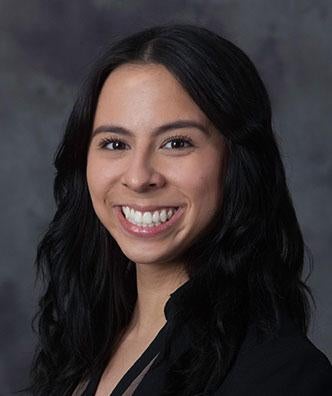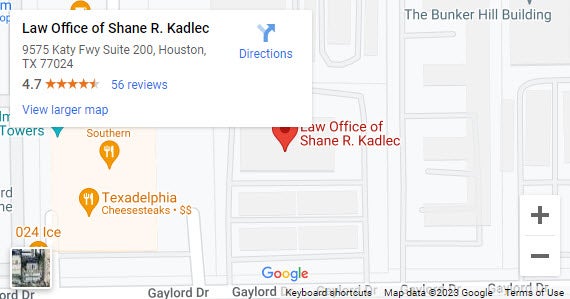Fall 2022 Winner Kristina Tipton

Fall 2022 Law Office of Shane R. Kadlec Public Service Scholarship Winner
Kristina Tipton
Kristina Tipton is an ambitious student who believes in standing up for marginalized communities. In her essay, you will learn how her struggles and growth as an individual helped to shape her aspirations. Kristina is incredibly driven and passionate and we know she will make a positive impact on the legal community.
Read Kristina's Essay:
In a time when our civility seems most vulnerable, my own personal experiences drive me to defend the rights of marginalized communities. My dedication is especially informed by an internship with the Legal Aid Society in New York City. The Legal Aid Society does more than just defend clients. Attorneys at the Legal Aid Society demonstrate what it means to be a public defender, advocating both in the community and in the courtroom. The Legal Aid Society's work in the community helps reduce crime rates by using the Cure Violence model, which recognizes gun violence as a public health issue. Their work in the courtroom gives voice to and advocates for those affected by our broken justice system. This holistic and grassroots approach results in fewer people going to court and provides informed and experienced counsel for those who do end up needing legal defense. The reason I wish to do this kind of community-based legal work is not just because I am a self-motivated, focused person with excellent interpersonal skills that will enable me to succeed as an attorney; my own status and experience as a marginalized person fuels my desire to make life better for others who have few resources.
While I now see law as the clearest and only path for my career, this was not always the case. Due to the history of addiction in my family, for my first two years as an undergraduate student at the University of Texas, my ultimate goal was to earn a degree in neuroscience. More specifically, I was interested in developing more effective treatments for drug abuse and alcohol addiction. As a research assistant in the Robert Messing Lab, I saw the vast potential for new discoveries and groundbreaking treatments as we investigated treatments for drug addiction and neuropsychiatric disorders. In just a short time, I was exposed to the dynamics of the research world and given the independence to impact critical data-focused projects, including biochemical techniques in targeting substance abuse and detailed statistical data analysis in preparation for upcoming publications. In studying the circuitry of addiction, anxiety, and depression, I found myself caring more about the people who suffer from these conditions, rather than the biology and science behind the diseases. I found myself wanting to get to know the people, to be on the ground with those who fall into legal troubles from factors that, at the end of the day, may be a result of genetic and biological predispositions. I wanted to do more, to have an impact outside of the lab. The way these diseases have such a large social impact on marginalized groups and the way this influences how we work and govern as a society, was eye-opening. I found that the answer is not in the lab, but in the courtroom.
Changing majors from neuroscience to government was certainly not an easy transition, but it was incredibly transforming. I learned about constitutional development around civil rights and the judicial process. The shift in course work further opened my eyes to the years of injustice throughout American history and helped me understand that, while we may have come a long way, there is still a long journey ahead of us. I used the same skill set that I used for empirical research, applying it to the course work in government and history and legal internships.
After graduating from college, I knew I wanted to gain more experience in the field I would one day call my career. I wanted to continue to learn, while being surrounded by the work I love. Following my internship at Legal Aid, I began working in the Austin Municipal Court, as a court clerk in the Travis County jail. During my time with the City of Austin, I learned how the justice system functions from the inside. Seeing firsthand the ways that the different pieces of each case function together, has been incredible. I learned about the nuance and intricacy of the justice system while also being exposed to some of the discrepancies, especially, how confusing it can be for the individuals who become “part of the system.” This has only further solidified my interest in law, as I see examples of this injustice in my current day-to-day work.
When applying for law school my application was less than impressive, my undergraduate GPA lacked due to the stresses of rigorous course work and balancing my jobs and finances. I worked my way through college to pay bills and tuition. I knew when I got to law school, I wanted to dedicate all my time to the course work and focus on my future. Unfortunately, I was waitlisted at South Texas, so when I was finally admitted I wasn’t offered any scholarships. This put me in a tough place, but I knew I had to do what was best for my future and take out loans to be able to focus on my education.
Succeeding in law school will afford me the opportunity to make the changes in the legal field and society that I set out to do. I am a strong-minded woman of color. I have a unique point of view and an attuned set of skills that could benefit the justice system from the inside out.
Contact Us For A Free Consultation
Work with an attorney with a proven record of success. To begin crafting your personal injury case, contact our Houston office online or call us at Free Consultation 281-962-8949.
We offer free personal injury consultations, and most cases are handled on a contingency fee basis. Under this fee structure, you would not owe us attorney fees unless we recovered compensation on your behalf.

